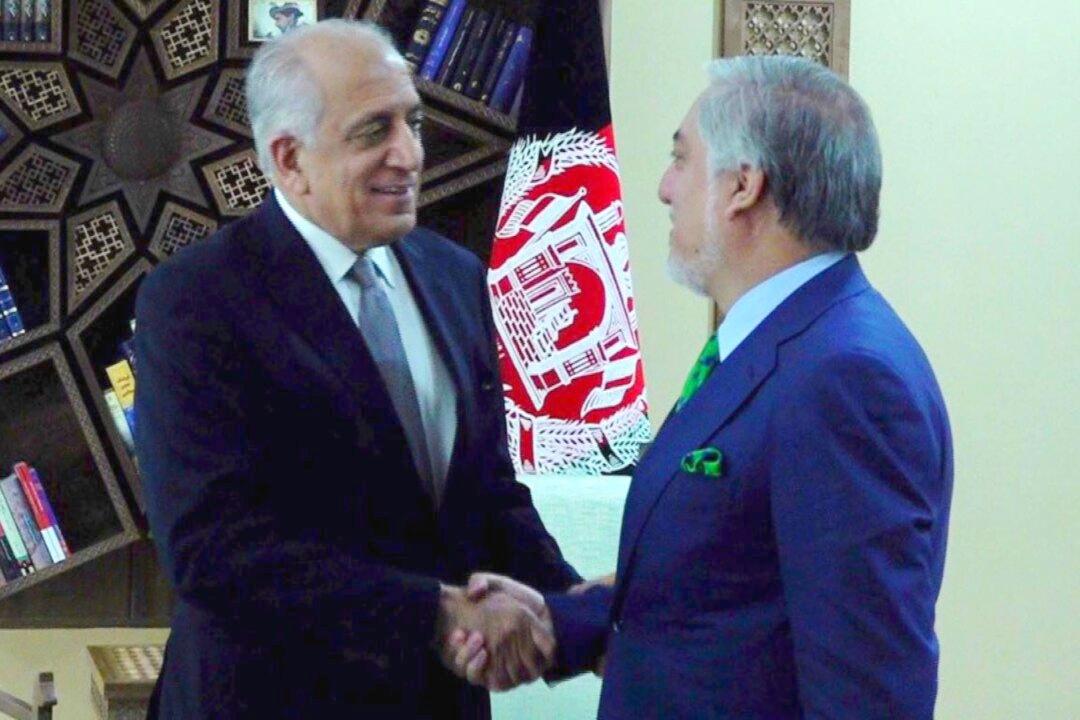KABUL—The United States would withdraw almost 5,000 troops from Afghanistan and close five bases within 135 days under a draft peace accord agreed with the Taliban, the chief U.S. negotiator, Zalmay Khalilzad, said on Monday.
The deal, reached after months of negotiations with representatives from the insurgent movement, must still be approved by President Donald Trump before it can be signed, Khalilzad said in an interview with Tolo News television.





